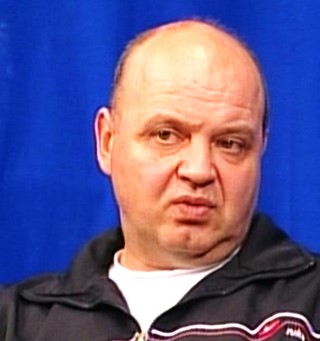The abuse of sports for political purposes primarily reflects in the government delegating their staff outside of sports in order to manage sports events without having adequate knowledge in the field itself.

Dusan Dacic
The link between sports and politics is in constant flux. As political turmoil on the global and regional scenes took place, events in sports harmonized with the demands of politics.
It must be kept in mind that both sports and people engaging in sports activities makes the most widespread industry on the global scale. Over time, sport has become one of the most profitable industries, given that many other industries are directly related to sports, like the manufacturing of sports equipment, betting and gambling houses. On top of that, sport is simultaneously connected with the pharmaceutical industry and with specific branches of medicine.
With the formation of the Olympic Movement, the IOC has in its documents explicitly banned the inclusion of politics in sports. Time has shown, however, that this has not been honoured. We can cite examples of the half-baked Olympic Games in Moscow (where Western countries did not participate), then the ones in Los Angeles (where the countries of the Eastern bloc did not participate), and as the last example the Beijing Olympics where there was a diplomatic boycott.
Sport has become extremely popular in the last 30 years. Equal participation of women and men has been introduced, huge financial resources have been invested, which has increased the number of sports disciplines. In addition to athletes, a large number of recreationists and fans are also involved. The financing of sports is largely related to the executive authorities, especially when it comes to organizing project competitions, the implementation of which comes from taxpayers’ funds. Consequently, in order to protect their interests in decision-making processes, an increasing number of athletes, coaches and socio-sports workers are involved in politics, thus becoming active participants in political processes.
The popularity of sports and the representation of sports in public life and media has all influenced the increased interest of political figures in including athletes in their activities. My opinion is that they were not recruited, but that it was exclusively their decision in order to achieve certain interests and protect activities which they engage in.
If we look back at the connection between politics and sports in the former Yugoslavia, we will see that the first signals of the disintegration of Yugoslavia were exhibited at major sports competitions. The first signals of political differences always appear first in the field of sports and culture, and other forms follow.
After the disintegration of Yugoslavia there was disunity in all segments. With the calming the political situation, ties between the former republics are being renewed, primarily through sports and culture. Regional leagues in certain sports are being formed and regional cooperation projects are being implemented in order to improve interethnic tolerance. There was no abuse of sports for political purposes, because the decision on whether someone will get involved in politics depends on the nature of the individuals and their interests. The narrative that some athletes are abused in electoral processes usually comes up when individuals do not fulfil interests and look for justification for their decisions in blaming others.
Every involvement of athletes in political currents is their personal choice, to which both successes and defeats are related. The biggest problem arises when athletes get involved in politics without having been educated before, and without having the necessary knowledge for a new activity, one that is completely different from sports activities.
The abuse of sports for political purposes primarily reflects in the government delegating their staff outside of sports in order to manage sports events without having adequate knowledge in the field itself.
The great popularity of athletes, which has been growing in the last few decades due to social media and the representation of athletes in public space, has had an exceptional impact on the formation of public opinion in the Western Balkans. Primarily because athletes are often idols of young generations, who are the bearers of future life in the region.
Dusan Dacic, former selector of the karate national team of FR Yugoslavia



Leave A Comment